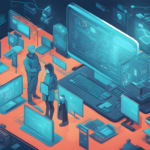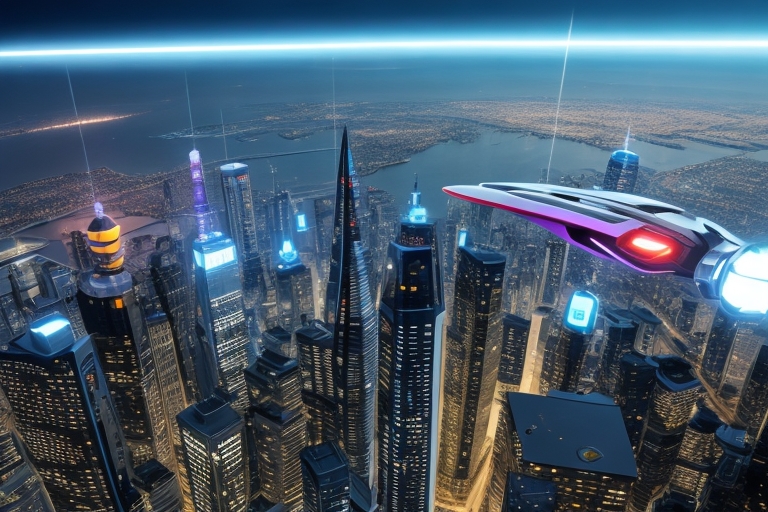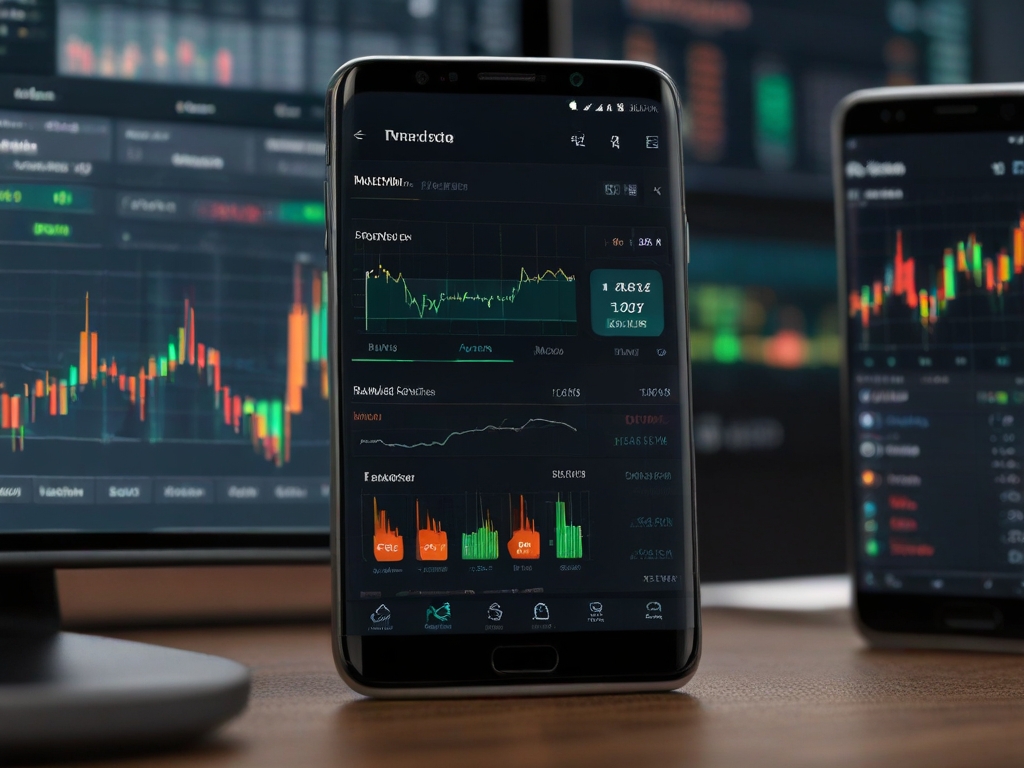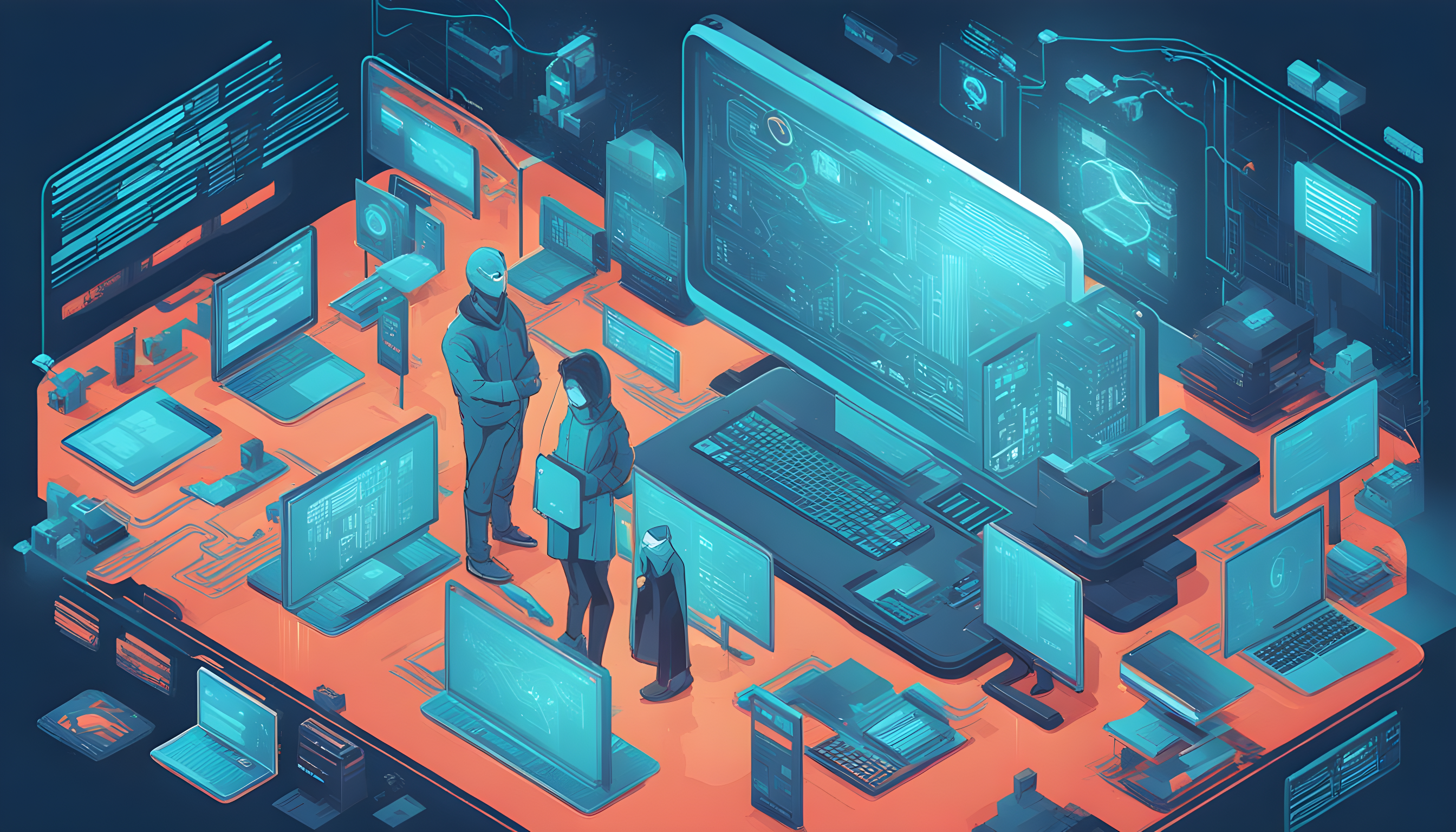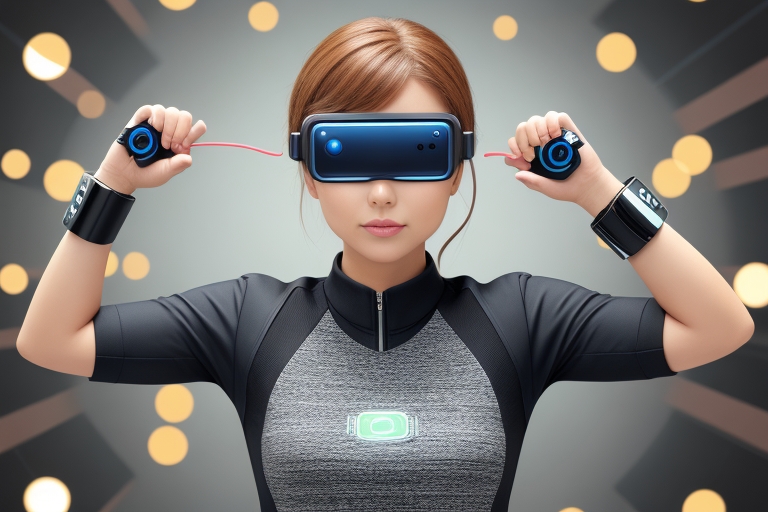Technology has transformed society over the past few decades at a pace never seen before in history. With innovations in artificial intelligence, augmented/virtual reality, blockchain, robotics and more, it can be challenging to predict where technology is heading next. However, by analyzing current tech trends and research, we can get a glimpse into the future. In this article, we’ll explore some of the most exciting emerging technologies and how they might shape our world in the coming years.
The Rise of AI and Machine Learning In Future of Tech
One of the most transformative tech trends today is the rapid advancement of artificial intelligence (AI) and machine learning. From virtual assistants like Siri and Alexa to self-driving cars, AI is becoming integrated into our daily lives. The global AI market size is expected to grow from $62.35 billion in 2020 to $733.7 billion by 2027. Key areas where experts predict AI will expand include:
Healthcare In Future of Tech
AI is revolutionizing medical diagnosis and treatment. Machine learning algorithms can analyze patient data and medical images to support diagnoses. AI chatbots provide medical advice. In the future, AI may help develop personalized medicine and treatment plans for patients.
Business In Future of Tech
AI can automate routine business processes like payroll and accounting. It can also analyze data to support business decision making in areas like predictive analytics and marketing personalization. AI will become essential for remaining competitive.
Transportation In Future of Tech
Self-driving car technology will continue improving, leading to autonomous vehicles becoming commonplace. AI will coordinate smart transportation systems, optimize traffic flow, and increase safety.
Cybersecurity In Future of Tech
AI can monitor networks, detect threats, and respond to attacks faster than humans. Cybersecurity applications of AI will grow as hacking becomes more sophisticated.
Virtual and Augmented Reality Immersion In Future of Tech
Virtual reality (VR) and augmented reality (AR) technologies are gaining traction for immersive experiences. The global AR/VR market size was valued at $87.97 billion in 2022 and is forecast to grow at a compound annual growth rate of 38.1% from 2023 to 2030. VR and AR applications include:
Entertainment In Future of Tech
VR headsets allow users to enter immersive imaginary worlds for gaming or movies. AR glasses can overlay digital images onto the real-world environment. VR/AR will drive the future of interactive media.
Training In Future of Tech
VR simulations provide immersive training environments for vocational skills like medical procedures and piloting vehicles. AR glasses guide trainees through hands-on skills in real settings.
Shopping In Future of Tech
AR lets shoppers visualize products in 3D before buying. VR provides virtual showrooms to explore products interactively. Retailers are embracing these to enhance customer experiences.
Remote Collaboration In Future of Tech
VR facilitates remote communication through virtual meetings where users interact as 3D avatars. AR allows collaboration by annotating physical spaces with digital content. VR/AR makes remote work more seamless.
Proliferation of 5G Networks In Future of Tech
The next generation of cellular data networks is 5G, which delivers radically faster speeds with lower latency than 4G LTE. As 5G infrastructure expands globally over the next few years, it will transform internet connectivity. Applications enabled by 5G networks include:
Smart Cities In Future of Tech
5G allows interconnected sensors and systems to monitor and optimize traffic, utilities, first responders and city operations in real-time. Smart cities improve convenience and efficiency.
Autonomous Vehicles In Future of Tech
Self-driving cars require constant connectivity and lightning-fast data transmission to respond safely to surroundings. 5G provides the bandwidth and speed for autonomous driving.
Telemedicine In Future of Tech
5G networks enable high-definition video consultations and remote robotic surgeries in real-time. Healthcare access expands for underserved populations.
Industrial Automation In Future of Tech
Factories and warehouses use 5G to support automation with intelligent robotics, vehicle-to-vehicle communication, and tracking of parts through the supply chain.
Blockchain Disruption In Future of Tech
Blockchain, the distributed ledger technology behind cryptocurrencies like Bitcoin, is poised to transform many industries. According to Allied Market Research, the global blockchain market will reach $394.60 billion by 2030. Here are some emerging blockchain applications:
Financial Services In Future of Tech
Major banks use blockchain for secure, efficient money transfers and transactions without intermediaries. Decentralized finance on blockchain expands access.
Supply Chain Monitoring In Future of Tech
Blockchain introduces transparency into supply chains, tracking the provenance of goods from manufacturing to delivery. This builds trust and accountability.
Digital Identity Protection In Future of Tech
Blockchain-based digital IDs offer enhanced security and prevent identity fraud. Users control their personal data on the blockchain.
Voting Security In Future of Tech
Blockchain voting systems provide transparent, verifiable election results. By preventing tampering and errors, blockchain can restore trust in democratic institutions.
Growth of Robotics In Future of Tech
Advancements in robotics are making machines smarter, more agile, and safer to interact with humans. According to Mordor Intelligence, the global robotics market will grow at a CAGR of 25.74% between 2022 and 2027. Key robotics applications include:
Household Help In Future of Tech
Friendly home assistant robots will provide services like tidying up, elderly care, instruction for kids. Household robots become integrated into daily life.
Delivery Automation In Future of Tech
Robots automate last mile deliveries via sidewalk droids and autonomous drone aircraft. Automated deliveries will be faster and more efficient.
Precision Manufacturing In Future of Tech
AI-driven robotics boost the speed, accuracy and flexibility of manufacturing. Robots complement humans for enhanced productivity.
Surgery and Rehabilitation In Future of Tech
Robotic surgery allows more precise, minimally invasive procedures. Therapeutic robots help patients recover from surgeries and neurological conditions via physical training.
The Metaverse and Web 3.0 In Future of Tech
The next evolution of the internet, often called the Metaverse or Web 3.0, promises persistent 3D virtual worlds interconnected across devices and applications. According to Emergen Research, the global Metaverse market will grow at a CAGR of 39.1% from 2022 to 2030. The Metaverse will transform internet experiences:
Persistent Virtual Worlds In Future of Tech
Metaverse users inhabit always-online virtual worlds like games and social spaces as personalized avatars. Lifelike graphics and physics create immersion.
Interoperability In Future of Tech
Seamlessly move between Metaverse experiences from different providers. Items and identity persist across virtual worlds, unlike separate apps today.
Creator Economy In Future of Tech
Users create, own and sell digital assets like avatars, clothing, content. User-generated economies emerge governed by blockchain.
Hybrid Experiences In Future of Tech
Physical world seamlessly meshes with virtual through AR glasses or mobile devices. Real-time shared hybrid experiences merge reality and fantasy.
The Internet of Things In Future of Tech
The Internet of Things (IoT) refers to the growing network of internet-connected smart devices embedded in everyday objects. According to IDC, the global IoT market will grow to 1.6 trillion by 2025. Here are some expanding IoT applications:
Smart Homes In Future of Tech
Home devices like lights, thermostats, locks, appliances connect via IoT for remote monitoring and control. Voice assistants integrate devices into one system.
Wearable Health Trackers In Future of Tech
Fitness bands and smartwatches collect biometric data to monitor your health and activity levels. Share results with your doctor.
Industrial Monitoring In Future of Tech
Sensors enable real-time analytics of production systems to minimize downtime, optimize outputs and predict maintenance needs.
Vehicle Telematics In Future of Tech
Fleet vehicles and consumer cars connect to IoT networks to monitor location, performance, maintenance issues in real-time to improve safety and efficiency.
Conclusion of Future of Tech
The pace of technology innovation is accelerating, making the future hard to predict. However, by studying current trends in areas like AI, AR/VR, 5G, robotics and blockchain, we can envision how emerging technologies may reshape our world in coming years, from how we work to how we shop, travel, and entertain ourselves. Small companies like kojyon.com can capitalize on these trends by staying nimble and open to adapting these technologies as they mature. The future of technology promises to bring astounding changes to society – are you ready?









